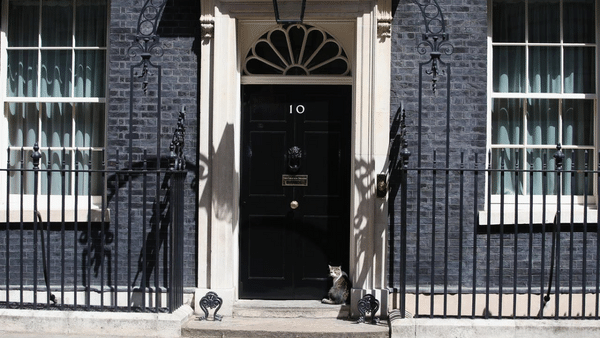As the US presidential polling day looms closer, one of the central questions of the moment is whether Barack Obama and Mitt Romney have what it takes to lead the most powerful democracy on Earth.
Perhaps unsurprisingly, the televised leadership debates are unlikely to provide much insight into each contender’s capacity for governance. To be sure, in every session the presidential candidates will be put through their paces and pressed hard to clarify their position on different issues, whether it be combating nuclear proliferation in Iran, driving forward economic recovery and jobs growth back home or getting to grips with the mammoth task of delivering affordable healthcare to millions.
Yet for all the questions and interrogation, it is very much doubtful whether viewers and the wider electorate will be left any the wiser as to their leadership abilities. This is in part because the debates are based upon a defunct belief that leaders should be all-knowing individuals who have all the answers to our biggest problems. As is clear from the work of academics like Keith Grint, in a world of complex (not just complicated) ‘wicked’ problems, this is a fantasy narrative that can only set them up for disappointment and the rest of us for disillusionment.
Wicked problems, whether climate change, global development or healthcare reform, cannot be met with easy answers but rather with ‘clumsy responses’ delivered through a different kind of leadership – one that is more humble, considered and thoughtful. In his recent annual lecture, Matthew Taylor indicated that such a model of governance relies on at least three things: asking questions not just giving patchwork answers; nurturing relationships not just building structures; and reflecting on problems not just reacting instantly to them.
Therefore in determining a Presidential candidate’s readiness for office - or the capacity of any leader for that matter - it may prove more beneficial to focus on the extent to which they stack up against these broader principles of ‘clumsiness’, rather than on whether they can reel off half-baked answers to mammoth, complex issues.
The principles outlined in Keith Grint’s paper, Wicked Problems and Clumsy Solutions, give us a sense of what these guiding maxims might look like:
Relationships not Structures – Understanding that the ability to wield power and effect change is based more upon a leader’s relationship with his/her followers and their interactions with one another, than on the structure in which they work. A regular failure to understand this rule is one reason why the various efforts to restructure the NHS have proven fruitless.
Reflection not Reaction – Acknowledging that decisiveness is only warranted during moments of crisis or when a problem is simple to solve. Dealing with Wicked problems, on the other hand, requires greater contemplation and “a proactive philosophical assessment of the situation.”
Positive Deviance not Negative Acquiescence – Encouraging people (‘followers’) to experiment and test different responses to problems on their own, as opposed to directing them to follow the dominant culture. Grint cites the example of a Save the Children study in Vietnam, which showed that the mothers of well-nourished children during a famine were deviating from social norms and spreading good behaviour on their own.
Negative Capability – Being able to remain comfortable with ambiguity and uncertainty. Related to the principle of Reflection not Reaction, this requires leaders to take their time with problems and to impose “a framework of understanding upon a literally senseless world.”
Constructive Dissent not Destructive Consent – Understanding that the ability to solve problems is greatly improved when there exists constructive criticism among followers, not mindless consent from ‘yes men’. Leaders therefore need to create a culture where others feel they can challenge them freely.
Collective Intelligence not Individual Genius – Acknowledging that the success or failure of endeavours cannot be reduced to the efforts of a single individual leader. It is a simple truth but one that is easily forgotten, both by followers and by leaders.
Community of Fate not a Fatalist Community – Being able to generate a feeling among followers that theirs is a shared fate and that more can be achieved in unison. Attempting and failing to address issues individually can often lead to a destructive fatalism which spreads throughout the whole population. Grint uses the example of a community leader in Leicester, who, upon recognising that fear prevented a disparate group of residents from combating a local gang problem, rallied everybody together to confront the issue as a large group.
Empathy not Egotism – Understanding that effective leadership requires regularly stepping into the shoes of your followers to understand how problems manifest themselves at a grass-roots level. This can often be achieved by becoming “an anthropologist of your own organisation” (e.g. Chief Constables who go out on the beat with their police officers).
Related articles
-
Design for Life: six perspectives towards a life-centric mindset
Joanna Choukeir Roberta Iley
Joanna Choukeir and Roberta Iley present the six Design for Life perspectives that define the life-centric approach to our mission-led work.
-
Inventing meaning and purpose: a politics award for our times
Ruth Hannan
Ruth Hannah is inspiring you to submit your creative and courageous political project to the Innovation in Politics Awards 2022.
-
How can we cultivate healthier and happier communities?
Ella Firebrace Riley Thorold
How might we look to our futures and shape what it means to lead healthier and happier lives?




Join the discussion
Comments
Please login to post a comment or reply
Don't have an account? Click here to register.
Thanks Andrew.
I did read a little about the Vanity Fair article - a good sign that the debate about the psycho-social qualities of leaders isn't just confined to academic / think-tank circles.
Ben
Thanks Matthew.
I was thinking of doing a very crude analysis of the party conference speeches using Jonathan Haidt's moral palettes model, but your idea of assessing them using Kegan's mental complexity model would be interesting too.
Wouldn't mind borrowing the book you mention if you have it to hand.
Ben
Great post and I agree with most of what you say. I do struggle with the term 'clumsy leader' which seems like a disparaging term for something very sophisticated and sadly all too rare. It takes nerve to be this kind of leader - to differentiate yourself from others and show yourself as someone living with the questions as opposed to providing simplistic 'answers'. The most effective leader in my view is the honest and transparent one. This is often negatively viewed as a 'soft' skill even though it's one of the hardest.
The only trouble with the points made above is that it's easy for leaders to tell themselves they do all this. There is often a gap between the leaders perception of themselves and actual behaviour. That's why it's essential that leaders receive feedback from those closest to them. Coaching can also support reflection and awareness.
Thanks for the post.
Paul Cummings
www.Kinharvie.org.uk
As I argued in my long piece in response to Matthew Taylor's annual lecture here http://bit.ly/clumsyleadership , 'Clumsy' leadership seems to strongly correlate to measures of psychological complexity such as Robert Kegan's 'ways of knowing'.
There is even one developmental complexity school that has been looking precisely at the issue of the psychological complexity of US Presidential candidates!
Basically, Elliot Jaques/Requisite Organisation-influenced scholars have been assessing the unscripted comments of US Presidential candidates over a number of elections to determine their cognitive complexity/time horizons.
Would you prefer a President with a 3-year 'time horizon' or one with a 50-year 'time horizon'?
I know which one I would want in power...
I think they even argue that the public can intuitively tell who the 'bigger' person is, and tends to vote for that candidate, and they also somehow take into account that a younger person will grow. Can't remember how Bush was explained...
The cognitive growth curve graphs of different Presidential candidates are fascinating, though they're down from the Requisite website right now, unfortunately. They promised me they'd get them up there again very soon. (Wayback machine doesn't seem to be working, for me, right now either; just tried Library of Alexandria mirror of it, and still can't find it.).
It should be fairly easy to see whether Mitt or Obama has the complexity to be a true 'Clumsy' leader by cross-comparisons from the Jaquesian speech analysis across to Kegan then Clumsy, or something like that.
Sarah Palin had a rather diminished 'time horizon' compared to Obama, to say the least... ;-)
Maybe the RSA could to analyse the non-prepared speech of UK political candidates and publicise their varying capacities!
That would certainly be hugely controversial and attention-grabbing!
Jaques does write something about politicians and cognitive compelxity in his book 'Human Capability'. Google shows brief, tanalising snippets:
http://books.google.co.uk/book...
I have the book, but not with me at work to check...
Matthew
Matthew Kalman Mezey
(Online Community
Manager)
RSA
Tel 020 7451 6825
www.thersa.org
A live dashboard webpage showing RSA online activity is here: http://bit.ly/onlineRSA
twitter.com/MatthewMezey
twitter.com/thersaorg
rsafellowship.com
(online community)
Is there an ‘RSA
Connector’ for your country yet?: http://bit.ly/RSAconnectors
‘7 Ways to become an
online Fellow’: http://bit.ly/7waystoengage
Actually, Obama comes across in Michael Lewis' recent Vanity Fair profile as having quite a lot of these characteristics: http://www.vanityfair.com/poli.... The section on the Libya no-fly zone is most relevant.
Not that you'd know it from the election campaign. So maybe there's a more systemic problem here?